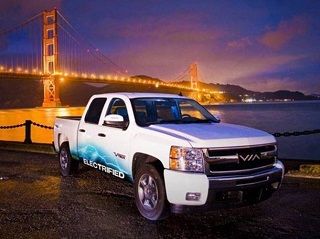From Guest Blogger James Timpson: Fuel Efficiency–How to Make your Driving "Greener"

Which Vehicle?
The type of vehicle you drive will impact how eco-friendly you are and this is reflected in the government tax rates. Tax is charged depending on the CO2 emissions of your vehicle. Therefore if you want to go green, the lower these emissions are the better and subsequently the lower the tax rate you will pay.
You can also look to vehicles which use alternatives to petrol and diesel and these include electric cars, LPG powered and biofuel vehicles. There are advantages and disadvantages for each type so research the issue fully before you reach a decision.
Of course there isn’t much you can do about either of these factors if you already own a vehicle, but when it comes to choosing your next model you might want to take both into consideration.
There are however, many steps you can take with the vehicle you drive now that will impact your fuel efficiency very positively.

You should also regularly check that your tyres are at the recommended psi as under inflated tyres can lead to drag as well as being a safety issue.
Improve the Efficiency of Your Vehicle: An engine which has to work overly hard will not be an efficient one and will use more fuel. Perform regular oil and filter changes to keep the engine lubricated and as the vehicle ages use synthetic oil which offers more protection.
Similarly if an engine can’t get enough air it will struggle and drop in fuel efficiency, so check air filters regularly and change as needed.
Think About Your Driving Style
Next we come to the changes which you can make to how you drive and these will probably return the most value in terms of increasing your fuel efficiency.
On cold days warm up your vehicle slowly. Don’t rev the engine as this will overwork it and lead to burning extra fuel unnecessarily.
Don’t idle when stationary. Vehicles can use substantial amounts of fuel even when stationary if the engine is idling. There is not much you can do about this in slow moving traffic but if you need to stop for any length of time, always switch off the engine.
Defensive driving techniques lead to a better safety record on the road and improve fuel efficiency. If you are looking ahead, scanning the road for any potential issues, you are going to have to brake less harshly and will probably need to go up and down through the gears less often. This will consequently lower your fuel consumption.
Accelerate smoothly for better fuel efficiency, too fast and you will strain the engine, too slow and you will use more fuel. You should also monitor your speed as going too fast can have a dramatic effect on increasing your vehicle’s fuel consumption. Most vehicles have an optimal speed and this usually lies somewhere between 55 and 60 mph. Push the vehicle much over that and your fuel efficiency will decline.
Many of these driving habits and vehicle checks will soon become second nature. While they may seem irksome at first you will definitely be grateful for the extra attention you have paid to your vehicle’s fuel efficiency when you need to fill up the tank less often.
